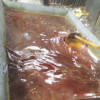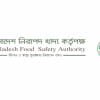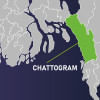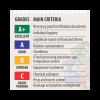Excessive Lead in Powdered Milk: No marketing before laboratory tests
The customs authorities have been asked to ensure that all milk powder importers stock products in their own warehouses and have those tested at designated laboratories before marketing.
Bangladesh Food Safety Authority (BFSA) issued the directive to the customs yesterday after laboratory tests found excessive level of lead in products of six local brands that import milk powder in bulk quantities and repack those locally.
The permissible level of lead in milk powder is 0.02 milligram a kilogram. But the milk products of six of the seven local brands tested at laboratories contained lead between 0.2 and 0.3 milligram (10 to 16 times the permissible level), said BFSA Member Mahbub Kabir.
“This level of lead is dangerous for human body, especially for children,” he told this correspondent.
Dr Tahmeed Ahmed, director at the Centre for Nutrition and Food Security at the icddr,b, said if children consume excessive level of lead, they may become stunted.
This can even result in growth failure, learning difficulties and also behavioural problems.
Stunting is associated with weak immune system that predisposes children to infections, he told this correspondent.
Mahbub said the BFSA had milk powder of 15 brands tested at the laboratories of the Atomic Energy Centre and the Institute of Public Health (IPH) in the capital over the last one month.
Seven of those were local firms and the rest foreign companies, he said.
"Lead was found in milk powder of the foreign companies as well but within the permissible level," Mahbub said.
He, however, declined to name the brands whose products contained excessive lead, arguing that disclosure of their names may create panic among people.
"We will soon sit with the six companies and see how to address the problem."
The official further said the BFSA is taking the contamination of milk powder seriously against the backdrop of a recent scandal involving French company Lactalis. Salmonella, a type of bacteria, has been found in baby formula manufactured by Lactalis which has ordered recall of its products from Bangladesh and 82 other countries.
In a letter to the customs authorities yesterday, BFSA Secretary Dr Md Khaled Hussain asked the commissioners of all customs houses under the National Board of Revenue to ensure that all types of imported milk powder are checked at the import level.
"Upon release from ports, every batch of imported milk powder has to be stocked in the importers' own warehouses until results of lead tests are provided by the laboratories concerned," the letter said.
For testing milk powder, the BFSA designated three laboratories of Bangladesh Council of Scientific and Industrial Research, the Atomic Energy Centre and the IPH.
Prior to the release of consignments from the customs, the importers have to sign affidavits, declaring they will not market milk powder before samples of the products are tested for lead.
The importers then have to send copies of the affidavits and the test results to the BFSA.
"Based on that, the authority [the BFSA] will either allow or disallow marketing of the products," said Mahbub.
As per the Safe Food Act 2013, all stakeholders concerned are obliged to cooperate with the BFSA or they will face legal action, he added.
Dr Tahmeed of the icddr,b said it is essential to ensure that milk powder is safe, especially because it has serious nutritional impacts on child health.
“The authorities also need to be careful that there is no crisis of milk powder in the domestic market," he told The Daily Star.

 For all latest news, follow The Daily Star's Google News channel.
For all latest news, follow The Daily Star's Google News channel. 








Comments